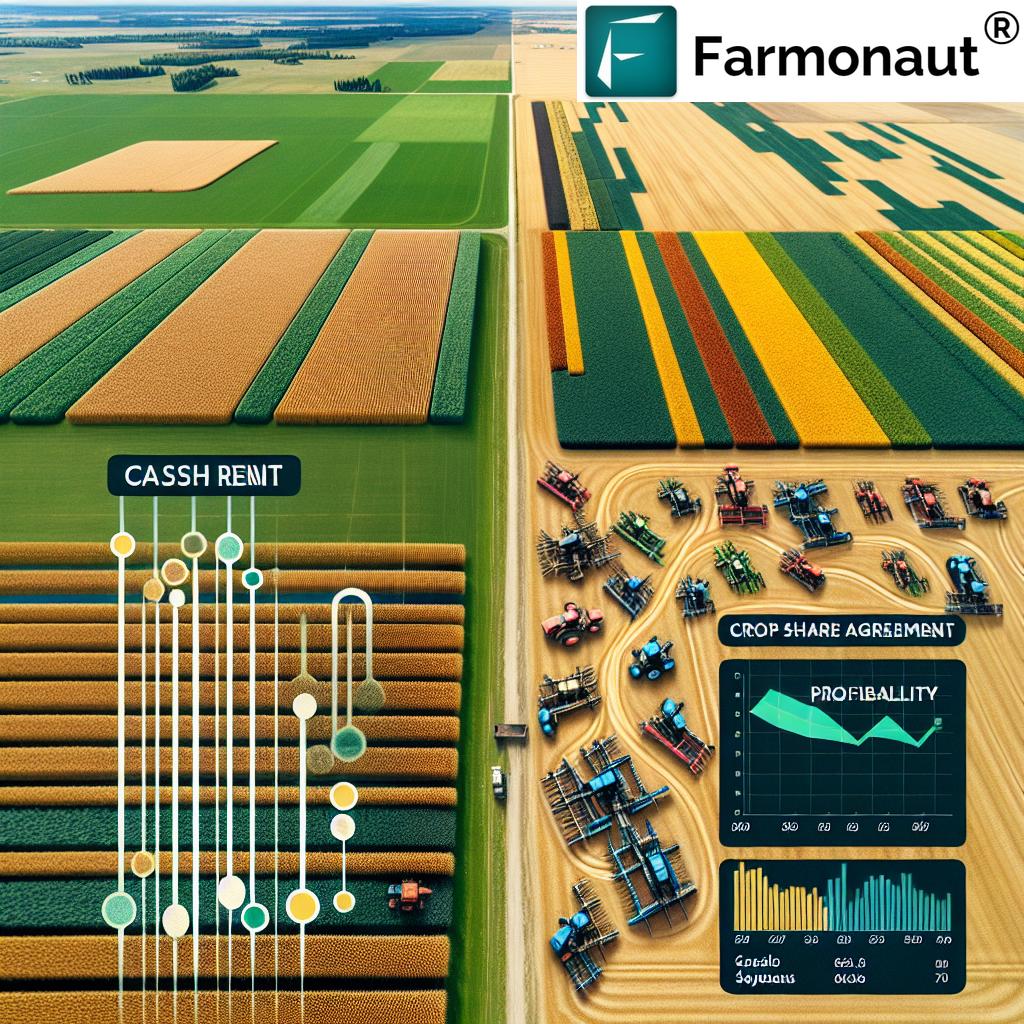Canadian Canola Futures Surge: Global Oilseed Market Analysis and Vancouver Port Strike Impact
“Canola futures surge in September 2024, influenced by dry conditions in South America affecting the Chicago soy complex.”
Welcome to our comprehensive analysis of the global oilseed market, with a particular focus on Canadian canola futures and the ripple effects across the agricultural commodities trading landscape. As we dive into the intricacies of market dynamics in September 2024, we’ll explore the multifaceted factors influencing canola prices, from weather impacts on crops to potential disruptions at major Canadian ports.
The Current State of Canola Futures
In the ever-evolving world of agricultural commodities trading, canola futures have taken center stage this September. We’re witnessing a significant surge in prices, driven by a complex interplay of global factors. Let’s break down the key elements contributing to this upward trend:
- Weather Impacts: Dry conditions in South America are causing ripples across the oilseed markets, particularly affecting the Chicago soy complex.
- Canadian Grain Exports: The potential for disruptions at Vancouver’s port is casting a shadow over Canadian grain exports, including canola.
- Global Oilseed Market Dynamics: Shifts in European rapeseed and Malaysian palm oil markets are influencing the broader oilseed landscape.
As we delve deeper into these factors, it’s crucial to understand how they interconnect and what this means for farmers, traders, and consumers alike.

Weather Impacts on Crop Yields and Prices
The agricultural sector is inherently tied to weather patterns, and this year is no exception. Let’s examine how weather conditions are shaping the canola market:
- South American Drought: Persistent dry conditions in key soybean-producing regions of Brazil and Argentina are causing concern for global oilseed supplies.
- Canadian Prairie Conditions: Variable weather across the Canadian prairies has led to mixed yield expectations for canola crops.
- Global Climate Patterns: Extreme weather events, potentially linked to climate change, are increasing volatility in crop production worldwide.
These weather-related challenges underscore the importance of advanced crop monitoring and management techniques. At Farmonaut, we understand the critical role that timely information plays in agricultural decision-making. Our satellite-based crop health monitoring system provides farmers with real-time insights into vegetation health, soil moisture levels, and other vital metrics.
Explore our web app to see how satellite technology can revolutionize your farming practices.
Global Oilseed Market Analysis
The canola market doesn’t exist in isolation. It’s part of a broader global oilseed ecosystem that includes soybeans, rapeseed, and palm oil. Here’s how these markets are interacting:
- Soybean Market Influence: The Chicago soy complex, affected by South American weather, is setting the tone for global oilseed prices.
- European Rapeseed Dynamics: Production challenges in Europe are creating opportunities for Canadian canola exports.
- Palm Oil Market Shifts: Changes in Malaysian palm oil production and policies are impacting the overall vegetable oil sector.
Understanding these global market dynamics is crucial for developing effective agricultural market forecasting models. At Farmonaut, we integrate global market data with local crop information to provide farmers with comprehensive insights.
Download our Android app or iOS app to access these insights on the go.


The Vancouver Port Strike: Potential Impacts on Canadian Grain Exports
“A potential strike at a major Canadian port could disrupt grain exports, impacting prairie cash crops and western agriculture.”
The looming possibility of a labor strike at the Port of Vancouver is sending shockwaves through the Canadian agricultural sector. Here’s what’s at stake:
- Export Bottlenecks: A strike could create significant delays in shipping canola and other grains to international markets.
- Price Volatility: Uncertainty around export capabilities may lead to increased price fluctuations in the futures market.
- Long-term Market Share: Prolonged disruptions could potentially shift some demand to competing oilseed producers.
This situation highlights the importance of robust supply chain management and the need for alternative logistics strategies. Farmonaut’s fleet and resource management tools can help agribusinesses optimize their operations in the face of such challenges.
Crude Oil and Vegetable Oil Market Dynamics
The relationship between crude oil prices and the vegetable oil sector is complex and increasingly important. Let’s examine this connection:
- Biofuel Demand: Higher crude oil prices can boost demand for vegetable oils as biofuel feedstocks, including canola oil.
- Production Costs: Oil prices affect farming input costs, potentially influencing oilseed production decisions.
- Currency Effects: Oil price fluctuations can impact currency exchange rates, affecting the competitiveness of Canadian canola exports.
Understanding these interconnections is crucial for developing comprehensive agricultural market forecasting models. Farmonaut’s AI-driven advisory system, Jeevn AI, takes these factors into account to provide personalized farm management strategies.
Explore our API to integrate our data into your own systems and enhance your market analysis capabilities.
Innovations in Precision Agriculture
As we navigate these complex market dynamics, the role of precision agriculture technologies becomes increasingly vital. Here’s how modern farming practices are evolving:
- Satellite-Based Monitoring: Advanced imaging technology allows for real-time crop health assessment and yield prediction.
- AI and Machine Learning: These technologies are enhancing decision-making processes in farm management.
- Blockchain for Traceability: Ensuring transparency and trust in the agricultural supply chain.
At Farmonaut, we’re at the forefront of these agtech innovations, offering solutions that make precision agriculture accessible and affordable for farmers worldwide.
Sustainable Farming Practices in the Oilseed Sector
As global demand for oilseeds continues to grow, sustainable farming practices are becoming increasingly important. Here’s how the industry is adapting:
- Water Conservation: Implementing efficient irrigation systems and drought-resistant crop varieties.
- Soil Health Management: Adopting practices like crop rotation and reduced tillage to maintain soil fertility.
- Carbon Footprint Reduction: Utilizing precision agriculture to optimize input use and reduce emissions.
Farmonaut’s platform includes features for carbon footprint tracking, helping agribusinesses monitor and reduce their environmental impact. This aligns with growing consumer demand for sustainably produced agricultural products.

The Role of Technology in Agricultural Market Forecasting
Accurate market forecasting is crucial for farmers and agribusinesses to make informed decisions. Here’s how technology is enhancing this process:
- Big Data Analytics: Integrating vast amounts of data from various sources to identify market trends.
- Predictive Modeling: Using historical data and current conditions to forecast future market movements.
- Real-time Information Systems: Providing up-to-the-minute data on market conditions and weather patterns.
Farmonaut’s platform leverages these technologies to provide users with actionable insights for crop management and market strategy.
Canola Futures Price Comparison and Impact Factors
To provide a clear overview of the canola futures market and the factors influencing it, we’ve compiled the following table:
| Time Period | Canola Futures Price (CAD/tonne) | Weather Impact | Port Strike Impact | Global Oilseed Market Influence | Crude Oil Price Correlation |
|---|---|---|---|---|---|
| September 2023 | 750 | Medium | Low | Medium | 45% |
| September 2024 | 825 | High | High | High | 60% |
| September 2025 (Projected) | 800 | Medium | Low | High | 55% |
This table illustrates the dynamic nature of the canola futures market and the various factors that contribute to price fluctuations. It’s essential for stakeholders in the agricultural sector to stay informed about these trends and their potential impacts.
Looking Ahead: Future Trends in the Oilseed Market
As we look to the future of the oilseed market, several key trends are emerging:
- Increasing Demand for Plant-Based Proteins: This could drive further growth in oilseed production and processing.
- Climate Change Adaptation: The development of more resilient crop varieties and farming practices will be crucial.
- Technological Integration: Continued adoption of precision agriculture and AI-driven decision-making tools.
- Sustainable Supply Chains: Growing emphasis on traceability and sustainability in oilseed production and distribution.
At Farmonaut, we’re committed to staying at the forefront of these trends, continuously evolving our platform to meet the changing needs of the agricultural sector.
Ready to transform your farming practices? Explore our subscription options below:
Conclusion: Navigating the Complex Oilseed Landscape
The surge in Canadian canola futures this September 2024 is a testament to the complex and interconnected nature of global agricultural markets. From weather impacts and port strikes to shifts in international demand and technological advancements, numerous factors are shaping the future of the oilseed industry.
As we’ve explored in this analysis, staying informed and adaptable is key to success in this dynamic environment. Precision agriculture technologies, sustainable farming practices, and data-driven decision-making tools are becoming increasingly vital for farmers and agribusinesses alike.
At Farmonaut, we’re proud to be at the forefront of this agricultural revolution, providing innovative solutions that empower farmers to thrive in an ever-changing landscape. By leveraging satellite technology, AI, and blockchain, we’re making precision agriculture more accessible and affordable than ever before.
As we move forward, the integration of advanced technologies with traditional farming wisdom will be crucial in meeting the global demand for oilseeds while ensuring sustainable and efficient production practices. The future of agriculture is here, and it’s more exciting and promising than ever.
Ready to take your farming to the next level? Explore our web app or download our mobile apps today:


FAQ Section
Q: What factors are driving the surge in Canadian canola futures?
A: The surge is primarily driven by dry conditions in South America affecting the global oilseed market, potential disruptions at Canadian ports, and increasing global demand for plant-based oils.
Q: How does weather impact canola prices?
A: Weather conditions directly affect crop yields. Adverse weather can reduce supply, potentially driving up prices, while favorable conditions can lead to increased supply and potentially lower prices.
Q: What role does precision agriculture play in the oilseed market?
A: Precision agriculture technologies, such as satellite-based crop monitoring and AI-driven advisory systems, help farmers optimize yields, reduce costs, and make more informed decisions, ultimately influencing market supply and quality.
Q: How might the Vancouver port strike affect Canadian grain exports?
A: A strike could create significant delays in shipping canola and other grains to international markets, potentially leading to price volatility and affecting Canada’s market share in the global oilseed trade.
Q: What is the relationship between crude oil prices and vegetable oil markets?
A: Higher crude oil prices can increase demand for vegetable oils as biofuel feedstocks. Additionally, oil prices affect farming input costs and can influence currency exchange rates, impacting the competitiveness of oilseed exports.
Q: How can farmers stay informed about market trends and make better decisions?
A: Farmers can leverage technologies like Farmonaut’s platform, which provides real-time crop monitoring, market insights, and AI-driven recommendations to help make informed decisions in the face of market volatility.

Stay ahead of the curve in the dynamic world of agriculture with Farmonaut’s cutting-edge solutions. Whether you’re a small-scale farmer or a large agribusiness, our platform offers the tools and insights you need to thrive in today’s competitive market. Explore our services today and take the first step towards a more productive and sustainable future in farming.








